
Members of the Senate Standing Committee on Inter-Provincial Coordination (IPC) expressed their dissatisfaction over the polio campaign on Friday urging stakeholders to plug loopholes to eliminate the crippling virus.
The committee meeting presided by Senator Farah Aqil was held at the Parliament House. Senator Dr Kalsoom Parveen, while expressing her apprehensions over the polio programme which has not been successful, said why Pakistan was still unable to eliminate polio despite ample funding was a big question mark.
She believed the main factors responsible were a lack of commitment towards eliminating polio from the country, poor management, inaccessibility of many areas, unavailability of cold storages for polio vaccination and irregular salaries for lady health workers. Dr Parveen said Pakistan cannot become a polio-free country until polio vaccination points are set up at each and every airport, dry port, railway station and bus stand.
IPC Secretary Anisul Hasnain Musavi said the ongoing insurgency in the tribal belt is one of the greatest hindrances in the way of polio campaign. In addition, power outages are creating problems for maintaining the cold chain.
While expressing her reservations over other health issues, Dr Parveen said after the 18th amendment a lot of confusion has arisen regarding national and provincial subjects. IPC Minister Mir Hazar Khan Bijarani said it was true that the provinces were not able to exercise their full powers a yet.
Meanwhile, other members expressed their reservations over the lack of expertise in tackling diseases caused by sandfly, especially in some areas of Balochistan. They said the concerned departments have done nothing to control the increasing number of cases. A separate programme on a national level to control the outbreak of sandfly infections was proposed.
An official from National AIDS Control Programme informed the committee that there are currently about 80,000 registered AIDs patients in the country. He said the main cause for the spread of AIDS is injecting drug users (IDUs), homosexuality, transgender relationships and transfusion of unscreened blood. He proposed a Syringe Exchange Programme and a public awareness campaign to control IDUs.
Capital admin directed to ensure no child is missed.
Meanwhile, in view of the polio threat to the capital, Islamabad administration has been asked to make all-out efforts to improve the upcoming polio campaign by overcoming past shortcomings.
Special Assistant to the Prime Minister on Social Sector Shahnaz Wazir Ali directed the administration to ensure a fool-proof arrangement for the upcoming three-day polio campaign starting from July 16 all over the country including Islamabad.
The directives were given in a special review meeting held at the chief commissioner’s office aimed to ensure strengthened implementation and monitoring measures so that no child is missed during the campaign. Representatives of international partner agencies and Islamabad health officials also attended the meeting.
“Islamabad has special significance with regard to the polio campaign since there is a huge influx of people to the city from polio-affected areas, which is why we need to plan effectively for a high-quality campaign,” Ali said.
She advised the Islamabad administration to engage more NGOs, INGOs and volunteers. She said that there is a dire need for more women to participate in the campaign to reach more homes and stressed on the need to track missed children so that each of them is followed up till he or she is given polio vaccine.
Published in The Express Tribune, June 30th, 2012.





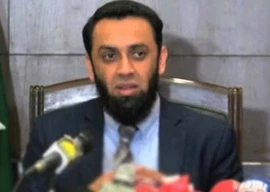
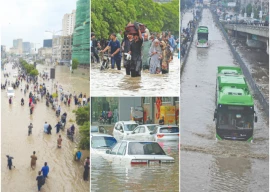


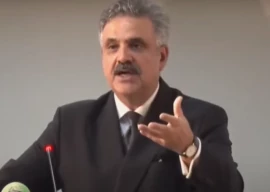
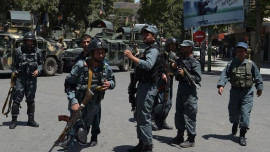
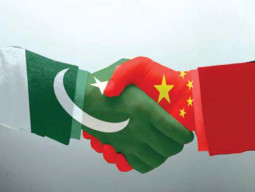







COMMENTS
Comments are moderated and generally will be posted if they are on-topic and not abusive.
For more information, please see our Comments FAQ